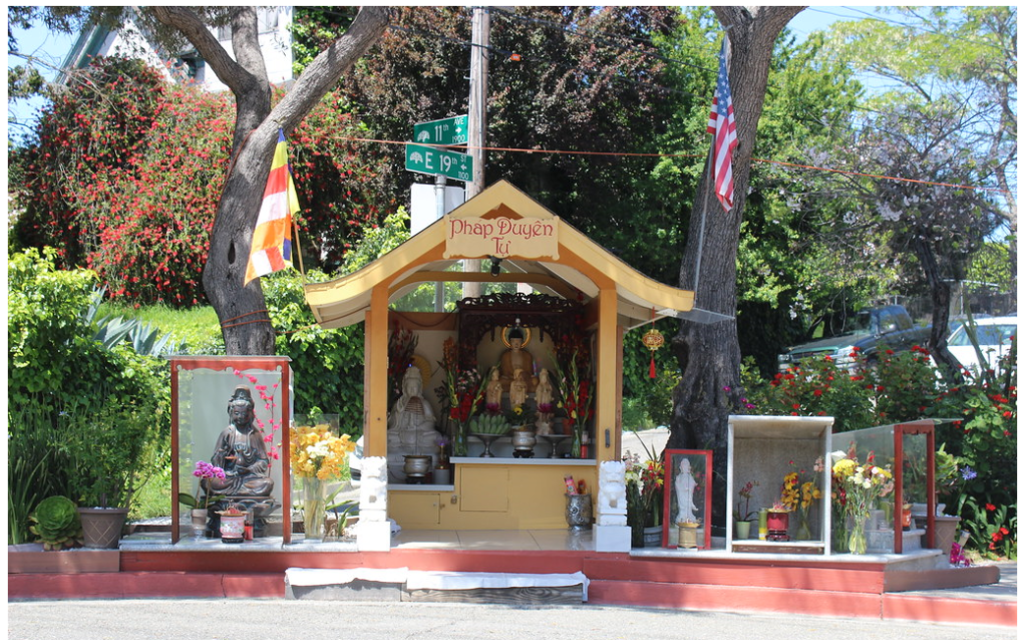 The podcast “99% Invisible” featured a fascinating story of an impromptu shrine and the unexpected benefits it’s brought.
The podcast “99% Invisible” featured a fascinating story of an impromptu shrine and the unexpected benefits it’s brought.
Dan Stevenson of Oakland, California, lived in a neighborhood beset with crime and drugs. An open space near his home was being used in 1999 as a site for illegal garbage dumping. Frustrated, Dan decided to clean up the space, purchase a statue of the Buddha, and place it on the site.
Strange things were afoot at the Circle K from that point forward. The trash dumping stopped. People began to leave offerings of various sorts at the statue. After being identified as the person who erected the statue, Dan started finding gifts left for him at his front door.
Daily prayer vigils began, and the space surrounding the statue was spruced up. Most interesting of all, recorded crime in the area dropped by 82%.
Erecting a shrine on public property might offend some sensibilities, but those in the area continue to appreciate it, and you can still visit it today.
University of Notre Dame law professors Margaret F. Brinig and Nicole Stelle Garnett may have found an echo of the Oakland Buddha in their statistical analysis between Catholic schools and neighborhood crime rates. Specifically, they examined data over time from Chicago and found that areas with closed Catholic schools experienced greater crime.
Interestingly, the analysis found no relationship between charter schools and social disorder.
A great deal more research lies ahead, but one of the aims of empowering families in education is to treat religious groups in a neutral fashion rather than actively discriminating against them.
American K-12 policy has addressed the question of religion through a series of follies. Public schools initially were used as an instrument of the Protestant majority to “assimilate” Catholic immigrants. The public schools were religious (Bible readings and all) but only in a fashion generically acceptable to Protestants. If you happened to be a Catholic, Jew, Buddhist, Muslim, Agnostic or Atheist, well too bad.
The Ku Klux Klan muscled through a law requiring public school attendance in Oregon in the 1920s. The Klan aimed to turn Oregon Catholics into “real Americans” (insert author gagging noise about here). The United States Supreme Court struck the law down. The productive course at that point (or any future point) would have been to embrace pluralism in education as is common in Europe.
As Winston Churchill once noted, Americans always can be relied upon to do the right thing but only after all other possibilities have been exhausted. Instead of “to each his own” in a fashion common in Europe, American public schools essentially banished religion from the curriculum in the decades following the Oregon episode.
The U.S. had precisely zero states in 2019 in which 50% or more of eighth-grade students could read at proficiency. I can live without these schools teaching religion, or their secular equivalents. If more kids could read proficiently, we would have hope for a future in which more adult Americans could think.
We may, however, have lost something very important in actively discriminating against religious schools, and it may stretch well beyond test scores. Government neutrality toward religious groups, neither favoring nor discriminating against them, creates a way forward in which the American people can shape the education space according to their needs and values.
We’ve exhausted all the other possibilities. It’s time to get this right.


